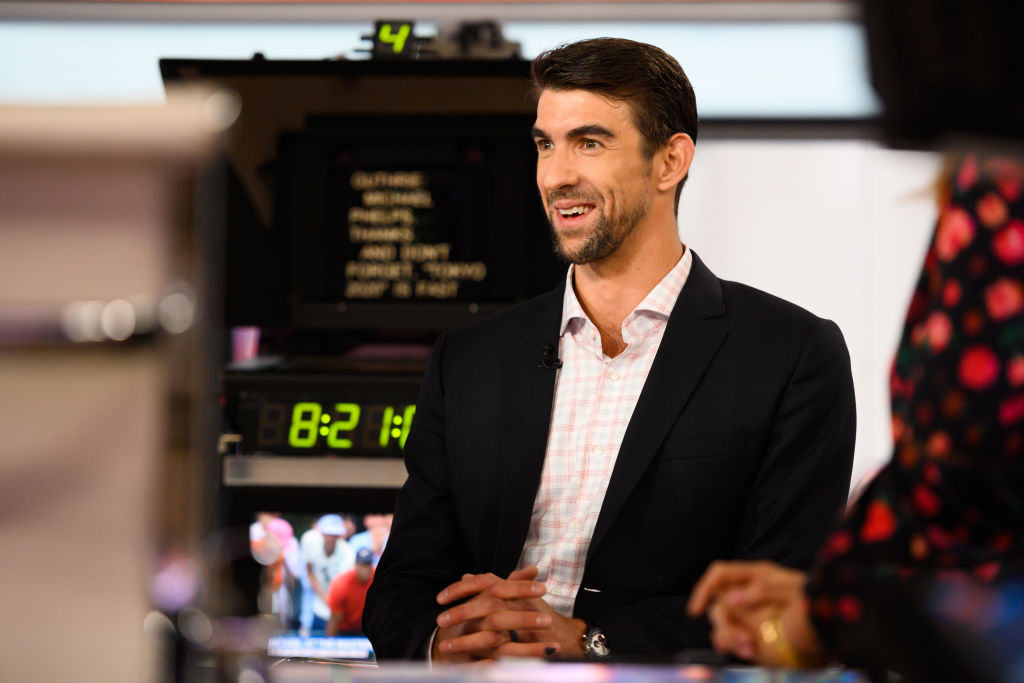Sports
The Anxiety Swimmer Michael Phelps Felt Before Races Was Never as Bad as It Is Now

Multiple-time Olympic gold medalist Michael Phelps couldn’t imagine not doing what he did best during his days as a full-time athlete. And then, suddenly, the champion swimmer not only had to imagine it but also struggle through it when he retired from international competition.
The difficulties have started anew for Phelps, who has been candid about his mental health.
Repetition and fixed schedules are an athlete’s allies
RELATED: What is Michael Phelps’ Net Worth and Where is the 23-Time Olympic Gold Medalist Now?
The disruption to life caused by the coronavirus pandemic has been difficult for many average Americans. The problem grows geometrically worse for those with mental health challenges.
No matter what he was feeling, 23-time Olympic champion Michael Phelps could count on the structure of his schedule to keep him feeling well both physically and emotionally while competing at the highest level. The swimmer’s days had a rhythm to them, each anchored by time in the pool or weight room and broken up by meals and time set aside for relaxation.
His more recent routine has been to hit the gym first thing in the morning because it gives him a reason to roll out of bed and provides a jolt of adrenaline to carry him through his day. Missing even one workout during the extended lockdown prompted by the corona pandemic can trigger the start of what he has termed a “scary situation.”
“It has been one of those months. Nonstop, my mood jumping up and down and all around,” Phelps wrote in an essay for ESPN.
Michael Phelps: ‘My emotions are all over the place’
RELATED: 7 Best Twitter Reactions to Angry Michael Phelps Face
Michael Phelps, who has been open about wrestling with his mental health challenges since before the 2016 Rio de Janeiro Olympics, describes the coronavirus pandemic as “one of the scariest times I’ve been through. I’m thankful that my family and I are safe and healthy. I’m grateful we don’t have to worry about paying bills or putting food on the table, like so many other folks right now. But still, I’m struggling.”
Phelps is enduring the same disruption to his daily life that millions of Americans have been facing for two months with no definitive finish line in sight. He has the same concerns as they do.
“When is it going to end? What will life look like when this is over? Am I doing everything I can to be safe? Is my family safe? It drives me insane,” he wrote. “I’m used to traveling, competing, meeting people. This is just craziness. My emotions are all over the place.”
Phelps, married and the father of three small boys, describes himself as constantly on edge and easily triggered, even by something as simple as not getting to the gym.
“If I miss a day, it’s a disaster. Then I get into a negative pattern of thinking in my own head. And when that happens, I’m the only one who can stop it. And it typically doesn’t stop very fast. I’ll just drag it out, almost to punish myself in a way.”
Michael Phelps
Michael Phelps has become an advocate
RELATED: Michael Phelps Wasn’t Shocked the Olympics Were Canceled
The list of Michael Phelps accomplishments in international competition is as long and impressive as that of any Olympian. Beginning with Athens in 2004, he has piled up 23 gold, three silver, and two bronze medals. The high-water mark was in Beijing in 2008 when Phelps placed first in all five individual events and three relays.
Phelps earned a $1 million bonus from sponsor Speedo for his 2008 dominance and used the money to create the Michael Phelps Foundation to promote healthy living and grow participation in swimming.
After opening up about mental health issues before the Rio de Janeiro Olympics, where he won his final five golds, Phelps became a spokesman for TalkSpace, a company conducting emotional therapy to patients online. He has continued to encourage people to seek help for concerns about their mental health.











